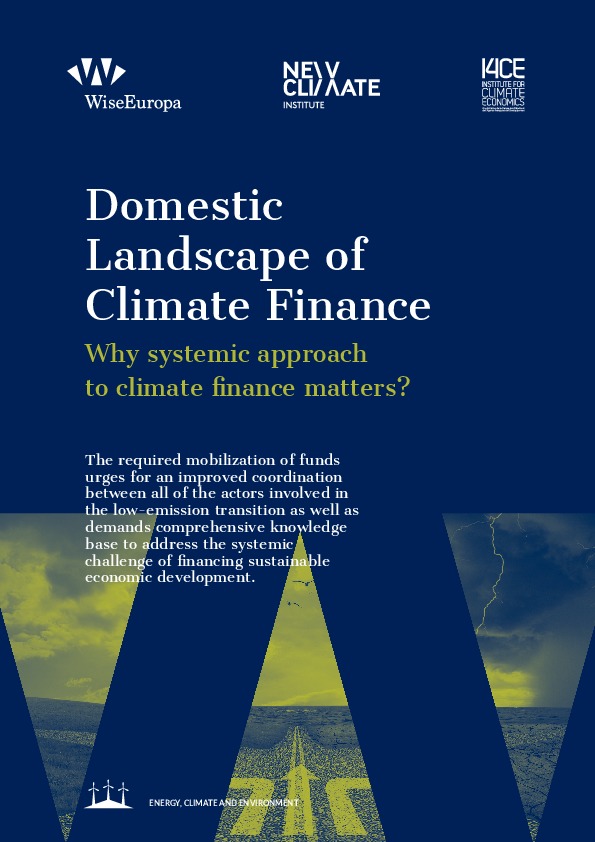Domestic landscape of climate finance: Why systemic approach to climate finance matters?
Why is it both important and useful to track climate investment and finance flows at the domestic level? In this policy brief, WiseEuropa, New Climate Institute and I4CE present an overview of how systematically tracking these flows can help governments and other stakeholders with quantitative data to assess progress towards national climate objectives as well as through understanding how different actors contribute to financing of climate mitigation and adaptation activities. Building on I4CE’s methodological work in France since 2012, the policy brief looks specifically at how improved tracking could assist policymakers in Poland in the development of an overarching long-term climate strategy as well as sectoral initiatives (such as the energy sector policy or initiatives tackling air pollution).
This policy brief is part of the project “Landscapes of Climate Finance: Promoting debate on climate finance flows in Central Europe” financed by the European Climate Initiative (EUKI) of the German Federal Ministry for the Environment, Nature Conservation and Nuclear Safety (BMU). It is the overarching goal of the EUKI to foster climate cooperation within the European Union (EU) in order to mitigate greenhouse gas emissions. The opinions put forward in this report are the sole responsibility of the authors and do not necessarily reflect the views of the Federal Ministry for the Environment, Nature Conservation and Nuclear Safety (BMU).


